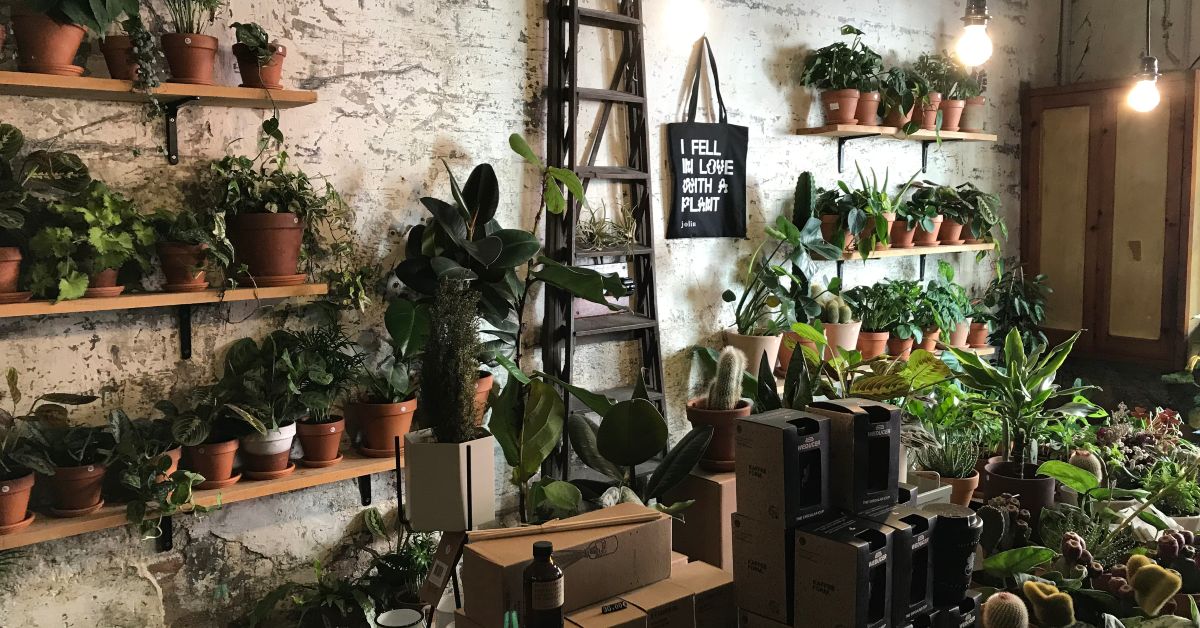If you don’t have enough space—let alone enough sunlight to peak through your place—yet still want to incorporate some greenery into your area at the least, tapping on container plants for shade is the way to go. Although most plants need full sunlight as their energy source, this isn’t always the case for all. Not all gardens receive enough sun, and that’s fine because not all plants need full sunlight to grow. There are few of those that thrive even under partial shade.
Interested to learn which of these I’m referring to? Read on.
Table of Contents
- Container plants for shade: vegetables
- Container plants for shade: herbs
- Container plants for shade: flowers
- Tips on how to make the most out of your shade-loving container garden
Container plants for shade: vegetables
Leafy greens: kale, lettuce, spinach, swiss chard
On the top spot for shade-loving vegetables would have to be leafy greens. Generally, they are the most tolerant when it comes to growing under shades and cooler temperatures. With just 3-4 hours of sun exposure a day, you can already enjoy your own fresh supply of leafy greens. However, this case would mean slower production but smaller, sweeter, and more tender, harvests.
Root crops: beets, carrots, potatoes, radishes
Second on the list for shade-tolerant veggies are root crops. Growing root crops in partial shades would help prevent them from bolting too quickly. Bolting is described as the sudden vertical growth of a plant entering seed production, usually followed by the plant’s death. Additionally, partial shades work well for root crops like beets, carrots, potatoes, and radishes because 4-5 hours of sun daily is already enough for them to thrive. Radishes specifically prefer shades, especially during the hot summertime. Generally, root crops may be harvested even before they fully mature. Just make sure to water them regularly to avoid woodiness.
Peas and beans
Peas and beans, like leafy greens, love cooler weather and are adaptable to shade. In fact, growing them under cool partial shades will help prolong their growing season. These vegetable varieties work with just 4-5 hours of daily sun. Remember to harvest as regularly as you can to encourage more production!
Back to table of contentsContainer plants for shade: herbs
Although herbs usually need more sun to grow, this doesn’t mean they can’t grow under the shade too. Four (4) hours of sun daily is enough for them to prosper. Take note that this would mean, however, slower and less dense production compared to those grown under fuller sun exposure. But, no need to worry since most culinary herbs are naturally fast growers—faster than lettuce. Moreover, when finally established, herbs like mint, chives, oregano, and cilantro, will flourish even with only 3 hours of sun a day.
Back to table of contentsContainer plants for shade: flowers
Different flower varieties grow best even on shady balconies or covered patios. Examples are:
- Begonias. Most begonias grow best when not exposed to full sun. Placing them on filtered sun or partial shade for about 4 to 6 hours is usually the best estimate to experience them at their best. Moreover, most begonias grow fine even under full shade (no direct sun), but expect fewer flower blooms. Water them at a minimum for they don’t like soggy soils.
- Impatiens. Impatiens are ideal for containers and they grow best under partial shade. At least 2-4 hours of filtered sun should be enough for their successful growth. Moreover, impatiens placed in heavily shaded areas usually grow taller with fewer blooms.
- Lenten rose. The shade tolerance of lenten roses makes them perfect for city gardeners. Just like all the other woodland plants, they grow best under partial shade. Do not—unless it’s winter and the sun is extremely mild—expose them to full sun, ever. Just remember to protect them from harsh winter winds.
Tips on how to make the most out of your shade-loving container garden
- Instantly brighten up your shaded spaces by planting light-colored plants
- All container plants, whether they require shade or not, need good soil to start. Do not use soil garden soil as they tend to be denser.
- Do not overwater your container plants, especially those placed under the shade, as the lack of sun exposure would mean a longer period for water to sit on the soil
Check out this good read: Container Gardening Ideas: The Best Guide for You
Back to table of contentsSources:


